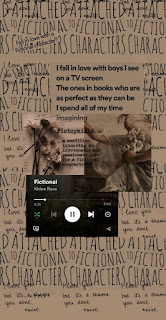You ever notice how when a character in a story does something brave, noble, or heartwarming, readers say, “Wow, I love this character!” But when that same character lies, makes a mistake, or breaks someone’s heart? Suddenly it’s: “Why would the author do this?!”
Excuse me?
I’m just the poor soul sitting here with coffee-stained notes and a blinking cursor, trying to make sense of human nature on the page.
Let me say it clearly: characters—though fictional—are not puppets. They’re people. Deeply flawed, complicated, inconsistent people. Just like… well, you.
Yes, you—the one shaking your head at my character’s poor choices like you’ve never texted someone you shouldn’t have, ghosted a friend, or made a wildly questionable life decision after 11 p.m.
Fictional ≠ Perfect
Somewhere along the way, many readers began treating fictional characters like moral fables. If a character makes a mistake, it must be a lesson. If they fail, there must be redemption. If they’re cruel, the writer must hate kindness. And if they stumble, well then clearly the author is glorifying failure.
But here’s the thing: sometimes characters make bad decisions because people do.
Sometimes they lie not to advance a plot, but because they're scared.
Sometimes they lash out, not for shock value, but because that’s how trauma, ego, grief, or pride look when they wear skin.
And yeah, sometimes they’re just… wrong. And they’ll pay the price for it. Or not. Like in life.
Unrealistic Expectations
There’s this idea that fiction should offer perfect heroes, or at least morally upright ones. But perfection is boring. Predictable. It kills tension. You don’t read a mystery or a novel to watch people act rational all the time. You read because you're chasing truth—and truth often comes wearing ugly shoes.
Characters are vessels for experience, not instruction. If I write someone who cheats, lies, betrays, or spirals, it’s not because I endorse it. It’s because that’s what that character would do, in that moment, with their backstory and their baggage and their beautiful, messed-up humanity.
So… Yes, My Character Screwed Up.
They made a call that hurt someone. Or maybe they tried to help and it still ended badly. Welcome to being human—even if you're made of ink.
So before you slam the book shut or send me a message asking “How could you DO THIS?”—take a breath.
Maybe ask yourself: have you never messed up?
And if the answer is yes (and it is), then maybe… just maybe… you're not so different from that fictional disaster you just judged.
TL;DR:
Writers don’t control characters like robots. Characters mess up. People mess up. That’s the point. That’s the story.
Let them be flawed. Let them fail.
Let them be real—because somewhere in all that imperfection is where we actually find ourselves.

Comments
Post a Comment